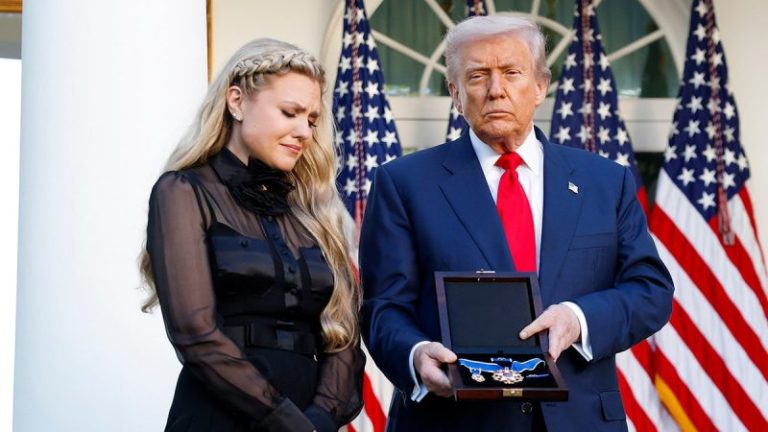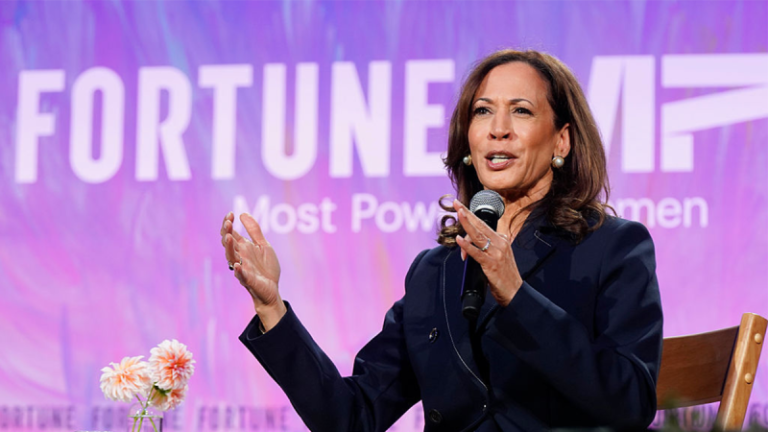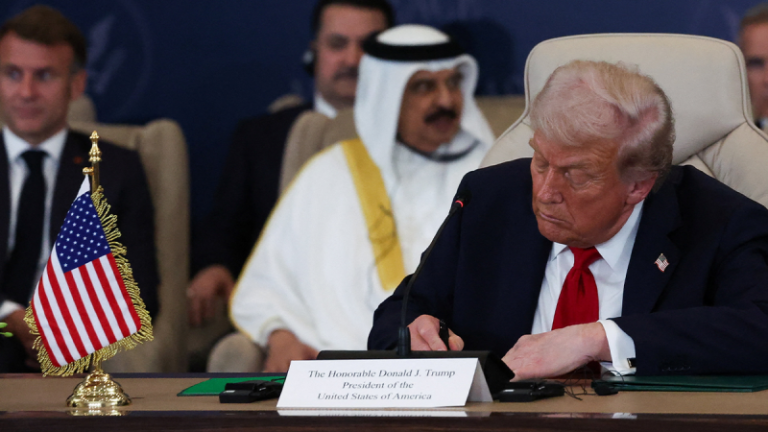President Donald Trump recently awarded late Turning Point USA founder and CEO Charlie Kirk the Presidential Medal of Freedom just over one month after the activist was assassinated. Kirk was outspoken about his conservative and pro-life views, and his legacy has inspired a new wave of activism.
Shawn Carney, the president and CEO of 40 Days for Life, praised President Donald Trump as ‘the most pro-life president we’ve ever had,’ telling Fox News Digital that pro-life Americans were delighted to see the president honor Kirk.
‘It was so beautiful to see him honor Charlie,’ Carney said. ‘He represented freedom, and there would be no pro-life movement without free speech. Free speech is what 40 Days for Life is built on, it’s what the pro-Life dialogue is built upon. It’s [what] Charlie gave his life for, and it was really, really beautiful for all pro-life Americans to see him honored with the highest honor we have in our nation.’
Kirk was known for participating in debates across the country and the globe, often confronting his harshest critics. Carney believes that Kirk’s willingness to go into tough arenas as well as his approachable and ‘authentic’ nature drew young people to him and the pro-life movement.
‘Charlie was open and was honest, and he was also humble and willing to talk to you,’ Carney told Fox News Digital, adding that being approachable, as Kirk was, is crucial in pro-life activism.
‘So many people have been hurt by abortion. So many people feel strongly in support of reproductive rights. And you just can’t go in and yell or say you’re going to burn in hell. You have to approachable, you have to use reason, you can’t be afraid to share your faith, as Charlie wasn’t,’ he added.
Carney said that 40 Days for Life has seen an uptick in interest, particularly among young activists, in the wake of Kirk’s assassination.
‘His tragic assassination was just two weeks before we kicked off one of our largest fall 40 Days for Life campaigns around the world,’ Carney said. ‘Over 700 cities participating, and we saw a huge uptick, a 36% increase in participation. We had so many young people come out… who knew who Charlie Kirk was, and were inspired by him to participate in 40 Days for Life, who then brought their parents out to pray at our vigils.’
He recalled one young woman — who he did not name — who said she was ‘so afraid’ to participate in pro-life activism prior to Kirk’s death. Carney noted that despite the ‘horrible images’ of the assassination, many felt empowered and compelled to speak up about their beliefs.
‘You thought the opposite would happen, that she’d be more afraid and others would be more afraid, but that didn’t happen,’ he said. ‘It literally inspired her to overcome years of fear.’
Carney also spoke about a TPUSA chapter leader whose mother tried to talk her son out of participating in either TPUSA or 40 Days for Life. The young man apparently told his mother that Charlie would have wanted him to speak out and not to run from culture wars.
When asked what Kirk’s message to pro-life activists would be if he were still alive, Carney said it would be to not give up. Carney added that he has heard newcomers inspired by Kirk say they believe that the TPUSA founder would want them to be outspoken and not to ‘cower.’
‘Right now in our culture, there’s a lot of reasons to be afraid, we can’t give in to them, we have to go out, we have to speak the truth and love, and that is what changes hearts and minds, and that’s the best way we can honor Charlie,’ Carney told Fox News Digital.




